With her strong, often fierce features and her convincing simulations of rage, Kate Fleetwood might have been born to play Medea. Unfortunately this isn’t Euripides’ Medea but Rachel Cusk’s free variations on the myth rather than the play. Many of her observations on marriage, motherhood and divorce are as penetrating and harsh as much of what we find in Greek tragedy, but they don’t join up to form the great dramatic arc you get in the original. Even director Rupert Goold, going way beyond the safe boundaries of so much British theatre as ever, can’t transcend the obstacles.
In this last of the main offerings in the Almeida’s big, bold Greek season, we’re in some ways back where we started with Oresteia – wholesale updating that tries to accommodate everything within a modern sensibility, raising difficulties rather than finding potent new solutions. Bakkhai, with its bewilderingly beautiful translation by Anne Carson and its astonishingly detailed musical approach to the chorus, showed that a certain fidelity to the original can batter, bewilder, strike contemporary chords and even make us laugh with its Euripidean irony. The performances here are just as good, and the basic issue of Medea – a powerful outsider-wife who won’t accept being cast aside for a younger model – remains totally resonant.
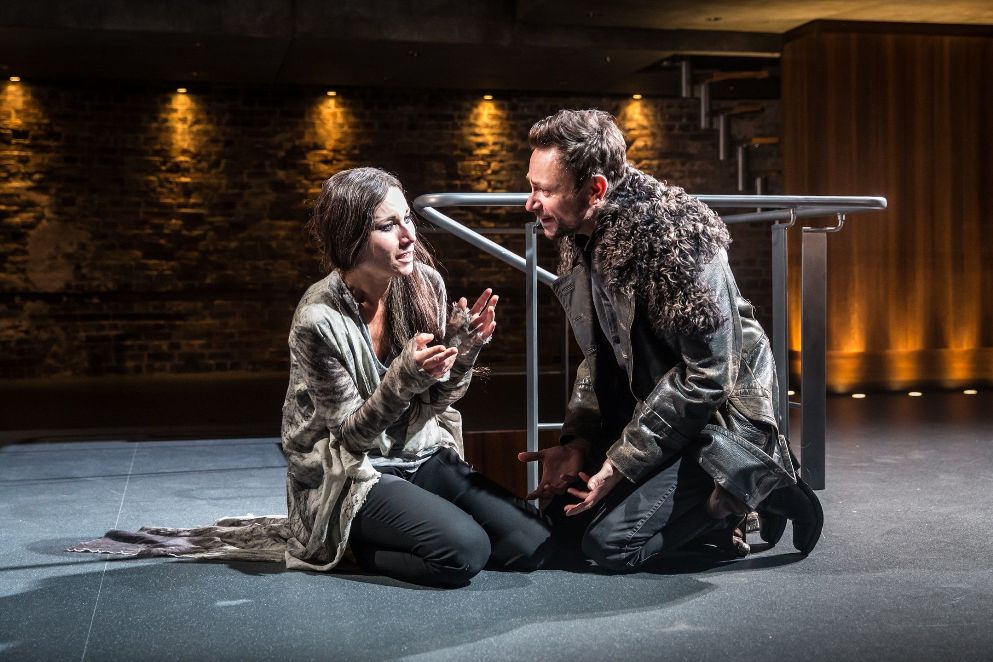 The problems are the language and the structure. Fleetwood’s Medea is seen motionless and faceless, long hair in the way, centre stage at the start as mum delivers a near-monologue of deliberate banality. It’s an Alan Bennett one-hander without the northern accent, and Amanda Boxer proves herself a worthy candidate for Bennett status. The five-strong chorus, clutching baby dummies in stylised choreography by Scott Ambler, sink even lower in a string of clichés and “dya-know-wad-I-mean”s, the mummy community who declares “she’s not one of us”. The group, which in Euripides is supposed to raise the poetic level, here pointedly lowers it.
The problems are the language and the structure. Fleetwood’s Medea is seen motionless and faceless, long hair in the way, centre stage at the start as mum delivers a near-monologue of deliberate banality. It’s an Alan Bennett one-hander without the northern accent, and Amanda Boxer proves herself a worthy candidate for Bennett status. The five-strong chorus, clutching baby dummies in stylised choreography by Scott Ambler, sink even lower in a string of clichés and “dya-know-wad-I-mean”s, the mummy community who declares “she’s not one of us”. The group, which in Euripides is supposed to raise the poetic level, here pointedly lowers it.
So far, fair enough, though where this can go already seems questionable. Fleetwood delineates Medea’s fury in talk-over-each-other phone conversations with husband Jason (Justin Salinger, completely plausible, pictured above with Fleetwood) and her short fuse with her two sons (on the first night Lukas Rolfe and Sam Smith, very real and natural too) is realistic. The soliloquies, eloquent as far as they go, are the closest we get to Euripides.
There's no point, though, in making comparisons with Helen McCrory's Euripides heroine at the National. Apart as this Medea may be in temperamant, she’s no suspicious foreigner like the original sorceress, rather a writer complementary to actor-spouse back in happier days. If there's an outsider here, it's the Brazilian cleaner, played with understatement by Michele Austin. The scene where the author-housewife is visited by sold-out colleague “Aegeus” comes dangerously close to the media self-love of certain American TV dramas; while its point hangs fire, Richard Cant saves the situation with low-key, melancholy camp. Andy de la Tour is excellent, too, as a creepy patriarchal neighbour, papering over textural obliqueness with suggestions of Dostoyevsky’s Grand Inquisitor or Mann’s Doktor Faustus devil.
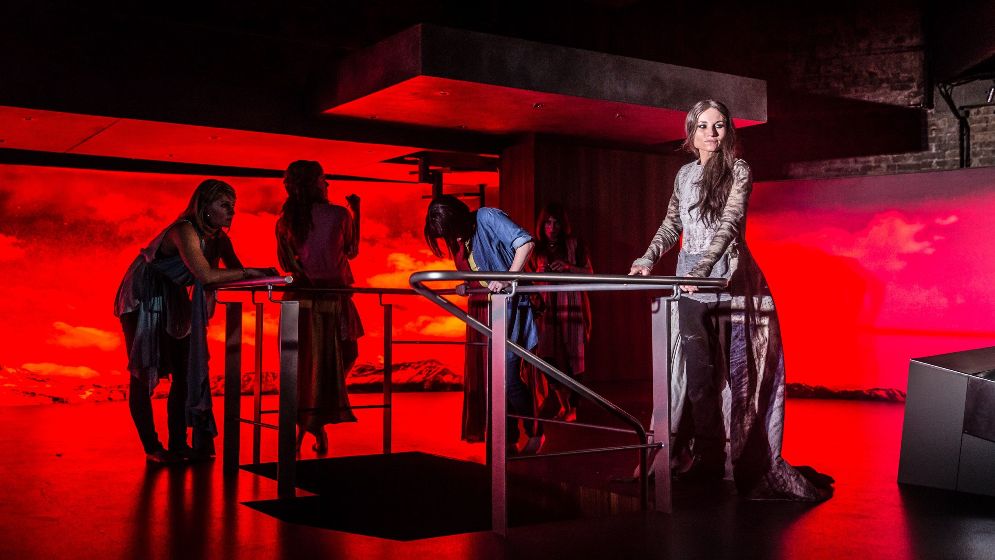 What should be a tense build-up to the big peripetaia, though, borders on the ludicrous. Ian MacNeil’s clinical design for living and partly living opens up to reveal a high sierra, superbly and variously lit to turn from green and blue to blood red, while the chores cavort like a coven to Adam Cork’s insufficiently strange dance score (scene pictured above left).
What should be a tense build-up to the big peripetaia, though, borders on the ludicrous. Ian MacNeil’s clinical design for living and partly living opens up to reveal a high sierra, superbly and variously lit to turn from green and blue to blood red, while the chores cavort like a coven to Adam Cork’s insufficiently strange dance score (scene pictured above left).
Goold wants to have it both ways and open up to timeless myth and a suggestion of Euripides’ denouement (no spoilers here). Bold that may be in comparison to half-baked "heritage tragedy" like the Old Vic Electra, but it doesn't really work. Cusk makes too few allowances for those bigger possibilities, and Charlotte Randle’s man-woman messenger ties up what plot there is all too glibly. Fascinating as it all was to watch, it didn’t move or properly involve me. Now if Fleetwood, a great Lady Macbeth, were to play the original Medea, and husband Goold were to direct it, I’d certainly want to go and see that.



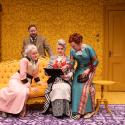




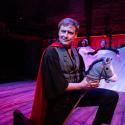

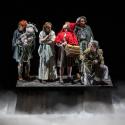
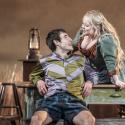
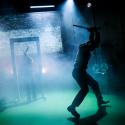
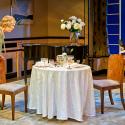
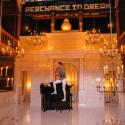
Add comment